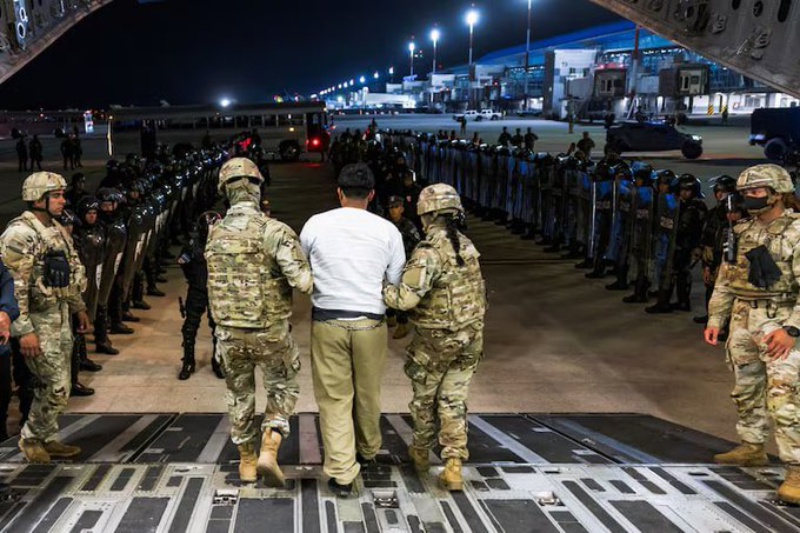
(C): MilitaryNewsUA – twitter
In a controversial plan, The Trump administration is considering deporting migrants to Libya by U.S. military flights, three U.S. officials told reporters earlier this week by reuters. If this is done, it is the first time migrants will be deported to the North African country, a nation characterized by political crisis and terrible detention conditions.
Two of the officials said the flights could happen as early as Wednesday, though plans could still change. It’s unclear how many migrants will be deported or their nationalities. Officials at the Pentagon said they could not comment and referred questions to the White House, which did not respond.
Since its civil conflict in 2011, Libya has continued to suffer from violent conflict and political division. Libya is currently faced with a U.N. backed government operating in Tripoli and a rival government in the east. American citizens are currently advised by the U.S. State Department against traveling to Libya for civil unrest, terrorism and risks of kidnapping. Furthermore, the potential for torture, overcrowding and lack of due process in Libyan detention centers is a very serious concern.
Regardless, the Trump administration is continuing its heavy-handed immigration enforcement, having already removed more than 152,000 people and putting pressure on other countries like El Salvador and Panama, to accept migrants from third countries. American officials claim that negotiations are still taking place for deportation arrangements with countries such as Angola, Benin, Eswatini, Moldova and Rwanda.
In recent statements, Secretary of State Marco Rubio stated that the administration wants to deport “some of the most despicable human beings” as far as possible away from the U.S. The Supreme Court has recently paused the deportations of Venezuelan migrants which have raised questions about due process protections in any continued deportation efforts.
If Libya agrees to accept the deportees, it would be a new chapter in U.S. immigration policy and likely to have intense scrutiny from human rights advocates.







